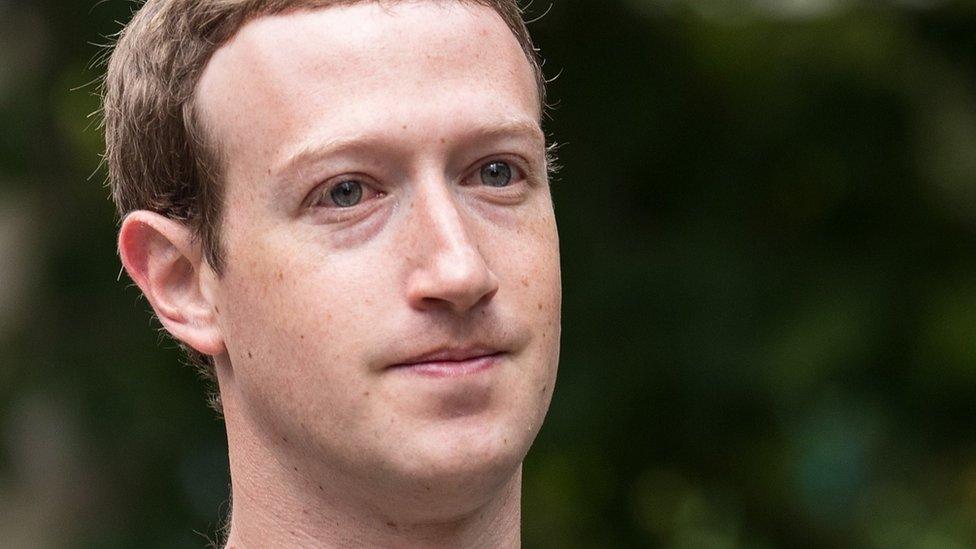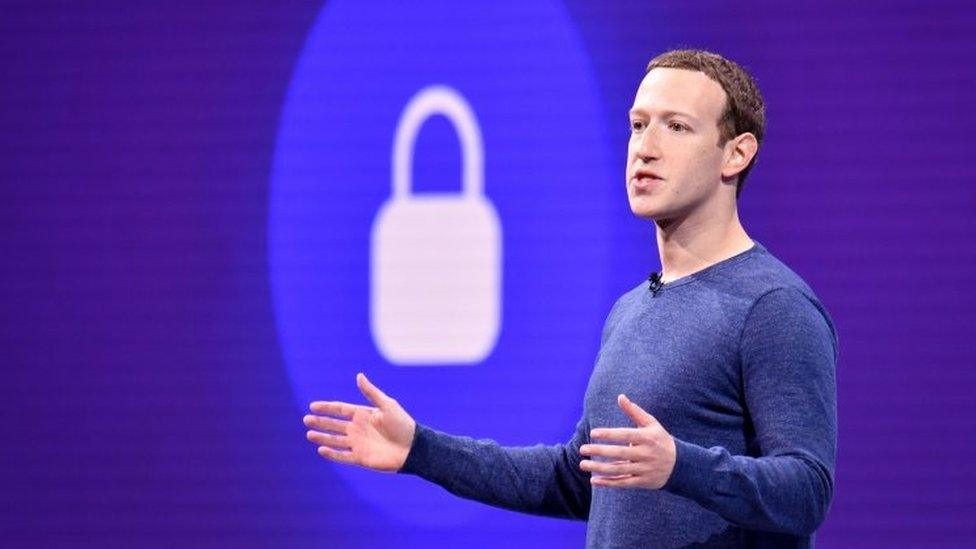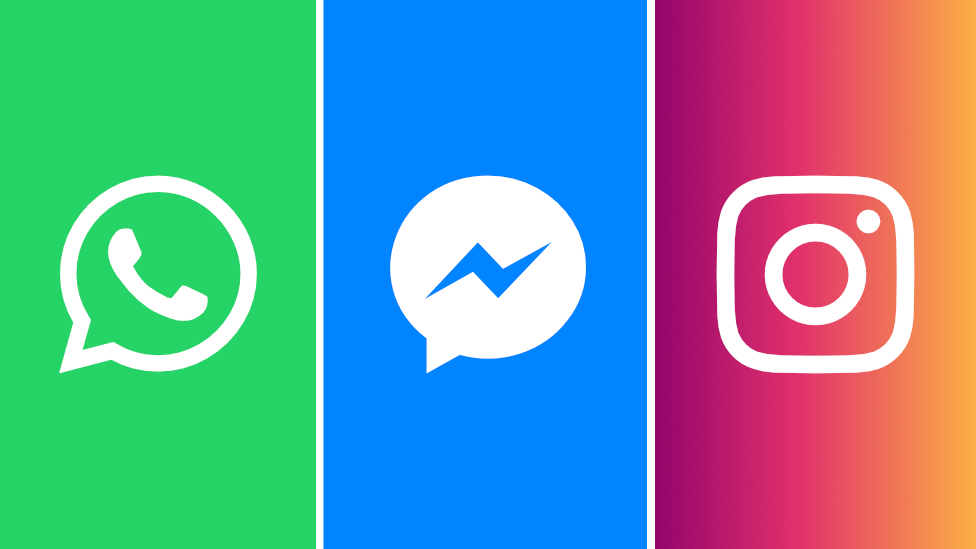Facebook: What's in Mark Zuckerberg's privacy plan?
- Published

Mark Zuckerberg wants Facebook to be "privacy-focused"
After a solid year of data breaches, privacy scandals and controversial policy decisions, Mark Zuckerberg now says he wants Facebook to become a "privacy-focused" social network.
Facebook's critics have laughed at the suggestion. Until now, it has been encouraging people to share more, scooping up buckets of personal data and using it to rake in advertising cash.
Will it really change, when it makes so much money from us over-sharing?
What has Facebook proposed?
In a 3,200-word blog, Facebook's chief executive, Mark Zuckerberg, said, external "privacy-focused communications" would become more important than open social networks in the future. In some countries, this is already the case.
Mr Zuckerberg said Facebook was exploring:
adding end-to-end encryption to all its messaging services so chats could not be seen by "hackers, criminals, over-reaching governments" or Facebook itself
"reducing the permanence" of content posted on Facebook, including disappearing photos, status updates and even private messages
merging elements of Facebook Messenger, Instagram and WhatsApp so that messages could be sent and received between all three apps
However, he stressed that the option to post publicly would remain, as it let people discover "new people, ideas and content" and gave people a voice.
He also said the company would not build data centres in countries with a "track record of violating human rights".
How will this help Facebook?
A move to make Facebook more privacy-focused may help restore some public trust in the platform, which has been plagued by a year of privacy scandals and data breaches.
Adding end-to-end encryption to all private messages would mean Facebook could not be compelled by governments to hand over its users' personal messages, because it does not have a copy.
Mr Zuckerberg said an "inherent trade-off" of encrypted messaging was that criminals could hide activity such as terrorism or child abuse.
But, he said, the company was improving its ability to "stop bad actors across our apps by detecting patterns of activity".
How will Facebook make money from this?
Facebook makes most of its money by letting advertisers target their messages at very specific audiences. People share so much on Facebook that the company can build a detailed picture of their age, location, political views, likes, interests and more.
Investing in privacy may:
rebuild trust in the platform and stop people from deleting their accounts
stop people deleting old posts, which leaves Facebook with less information to profile people with
encourage people to post more content such as disappearing stories. "People are more cautious of having a permanent record of what they've shared," said Mr Zuckerberg
help Facebook keep pace with the public shift from posting everything online to sharing privately in group chats
The company is also exploring ways that it can charge businesses to contact people on its messaging apps.
"I understand that many people don't think Facebook can or would even want to build this kind of privacy-focused platform," said Mr Zuckerberg.
"Frankly, we don't currently have a strong reputation for building privacy protective services and we've historically focused on tools for more open sharing.
"But we've repeatedly shown that we can evolve to build the services that people really want, including in private messaging and stories."
The changes would take "several months" to roll out, he added.
In May 2018, it promised to launch a "clear history" feature that would let people delete personal data Facebook had scooped up. The feature has still not launched.
- Published7 March 2019

- Published25 January 2019
